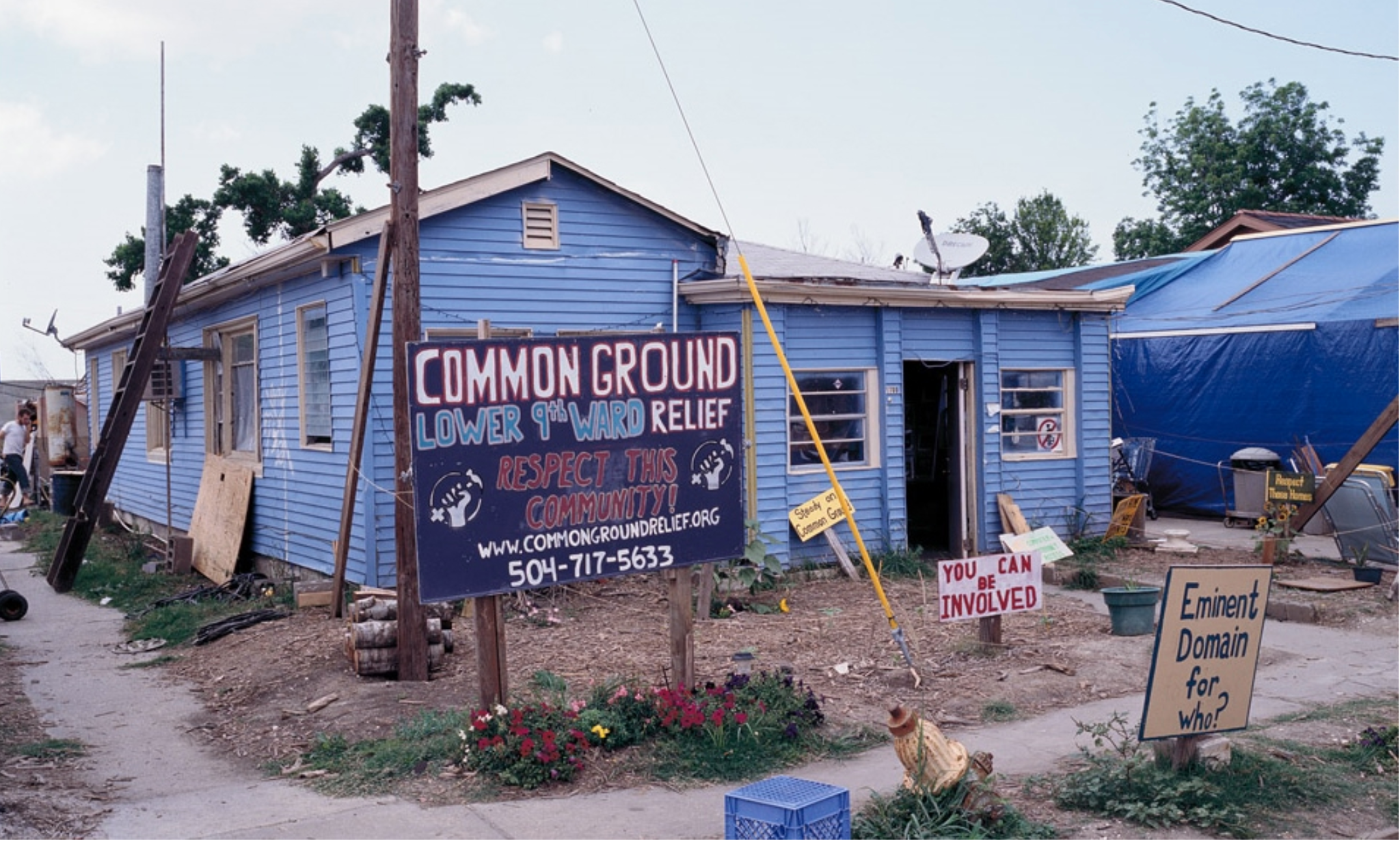Fifteen years after Hurricane Katrina, the Common Ground Collective’s uncommon success offers lessons on how to build effective mutual aid projects today.
Waging Nonviolence, August 20, 2020
It started in Malik Rahim’s kitchen, as the waters from the broken levees continued to flow through New Orleans’ lower 9th Ward. A small group of activists from the city and Austin, Texas, including former Black Panthers, began scratching down notes and trying to figure out exactly what they could do to provide support to the neighborhoods obliterated by Hurricane Katrina.
This was in 2005, just days after the storm had battered the city and demolished the levees, overwhelming the surrounding blocks with a toxic water sludge. Services had entirely collapsed and government officials were unable, or in many cases unwilling, to intervene and support the people who had stayed to weather the storm. In this vacuum, white militias began patrolling black neighborhoods, murdering people under the guise of protecting against “looters.”
A group came together to address the growing needs in the community called the Common Ground Collective, which became an example of the type of mutual aid projects that are possible during a disaster. Using a horizontal, all-volunteer approach, the project evolved from a collection of people simply providing basic disaster relief, such as food and medicine distribution, into a fully working clinic where people could receive health care.


